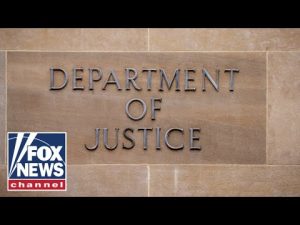In a dramatic electoral showdown, Karl Nawrocki has emerged victorious in Poland’s presidential election, securing nearly 51% of the vote against a liberal competitor who managed to capture about 49%. This tight race reflected a deep divide among the Polish populace, but Nawrocki’s win signals a significant shift toward conservative governance. As he prepares to take the helm in August, Nawrocki—backed by former President Trump—intends to maintain and bolster the close ties between Poland and the United States, setting the stage for a new chapter in Polish politics.
Nawrocki, a former boxer at just 42 years old, is seen as a fresh face in the political arena. His youthful energy and patriotic passion resonate with many in Poland, especially those who cherish Polish sovereignty and strong relationships with allies. The previous administration, led by Donald Tusk, was perceived as neglecting the critical bond with America, raising concerns about Poland’s future positioning on the world stage. With Nawrocki stepping into office, there is hope that he will counteract the liberal influences that have attempted to disrupt Polish-American relations.
Political experts highlight the significance of this election, suggesting that had the results leaned the other way, not only Poland but also Europe could have faced a different trajectory. Poland plays a pivotal role in NATO’s eastern flank, and Nawrocki’s victory is expected to rejuvenate initiatives supported during Trump’s presidency, particularly the Intermarium Three Seas initiative, which focuses on collaboration among Central and Eastern European nations. His belief in the importance of this project could shift Poland back toward a focus on both regional stability and American partnerships.
As the election unfolded, it became clear that the liberal challenger enjoyed substantial financial backing, which many believe influenced the overall close results. The former Prime Minister of Poland, Mateusz Morawiecki, noted that if not for these liberal dollars pumping into the opposing campaign, Nawrocki’s victory margin could’ve been even more substantial. With this winning ticket, Nawrocki is tasked with continuing the work of his predecessor, Andrzej Duda, and reinforcing Poland’s position on international issues such as defense and economy.
The implications of Nawrocki’s presidency extend far beyond Poland’s borders. His administration promises to prioritize defense spending at a time when geopolitical tensions are on the rise, particularly given the neighboring conflict in Ukraine. With Nawrocki at the helm, there’s confidence that Poland will continue to play a critical role in supporting Ukraine against Russian aggression. The strengthening of the Polish-American alliance is seen as essential not only for regional security but for fostering a broader coalition of democracies around the globe—an effort that Nawrocki seems well-prepared to lead.
As the political landscape shifts in Poland, one thing is certain: the world will be watching closely. Nawrocki’s leadership could usher in a new wave of conservative governance in Europe, all while fostering the important ties between Poland and the United States that are so crucial in these challenging times. With a penchant for strength and resilience, Poland finds itself once again in a position to assert its voice on the world stage, with hopes resting squarely on the shoulders of its newly elected president.







